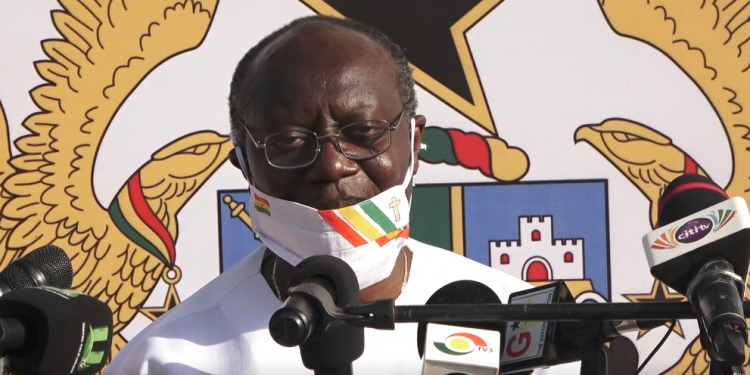Three months after the Agyapa Royalties deal was suspended, a former Professor of renowned Oxford University wants the deal to be maintained but subjected to a national debate on the way forward.
The Agyapa Royalties Deal is a move by government to mortgage the country’s royalties for cash to finance infrastructure projects.
But Professor Noel Tagoe tells Joy Business the debate should focus on the valuation process, alternatives and a possible mixture of financing national spending.
“I think we need conversations broadly on financing that takes into consideration things like Agyapa, things like borrowing money if we have not been able to expand our tax base. But once you put it within a framework, and you say you’re going to use it to fund real infrastructure, how much is it going to lift off Gross Domestic Product, all things being equal. Then when we finance, we’re going to come back and do an impact assessment to say this is what is happening,” he said.
According to Professor Tagoe, majority of Ghanaians do not understand the Agyapa deal, urging the central players to resolve the conflict of interest and use astute negotiators for future deliberations.
“I think most people have not understood Agyapa and most of the conversations that have taken place are really uninformed but that’s part of the suspicion and the many accusations back and forth. My understanding of the politics around Agyapa has been about conflict of interest of central players in government. That should stop; just cure the conflict of interest, that’s the easiest thing to do. The same with China and the barter; again comes with the issue of evaluation and our positioning in terms of our negotiations. We have to have astute negotiators sitting across the table,” he stated.
Speaking on the introduction of new taxes in the recent budget, Professor Tagoe said Ghana should adopt a daily rate for the informal sector to rake in more revenue.
He was of the view that taxation in that sector should not be overburden the players.
“There are a couple of things to know about taxation; widen the base and widening the base is both in the informal and formal sector. We don’t seem to have much data on the informal sector but if we manage to bring data from the informal sector, then we’re beginning the journey to widening the base.”
“You don’t only need data but you need good data analysis to gain insight to know how they have performed and then collect taxes from them in a manner that doesn’t impose on them. Someone from the informal sector doesn’t have the time to write all manner of things so daily tax rates are important and manageable”, he emphasized.
“Who says we cannot develop apps to collect taxes and that the payment system should not be mobile money for example. In my line of work, I would estimate that our tax can increase by several billions of cedis if we manage to be astute. People mustn’t hassle to pay taxes,” he suggested.
Professor Tagoe based his suggestion on the fact that Ghana’s tax base is low and the country cannot continue to rely on grants.
He further indicated that for the country to be self-sufficient, the country needs to reconstruct policies and consider smart technology management.




